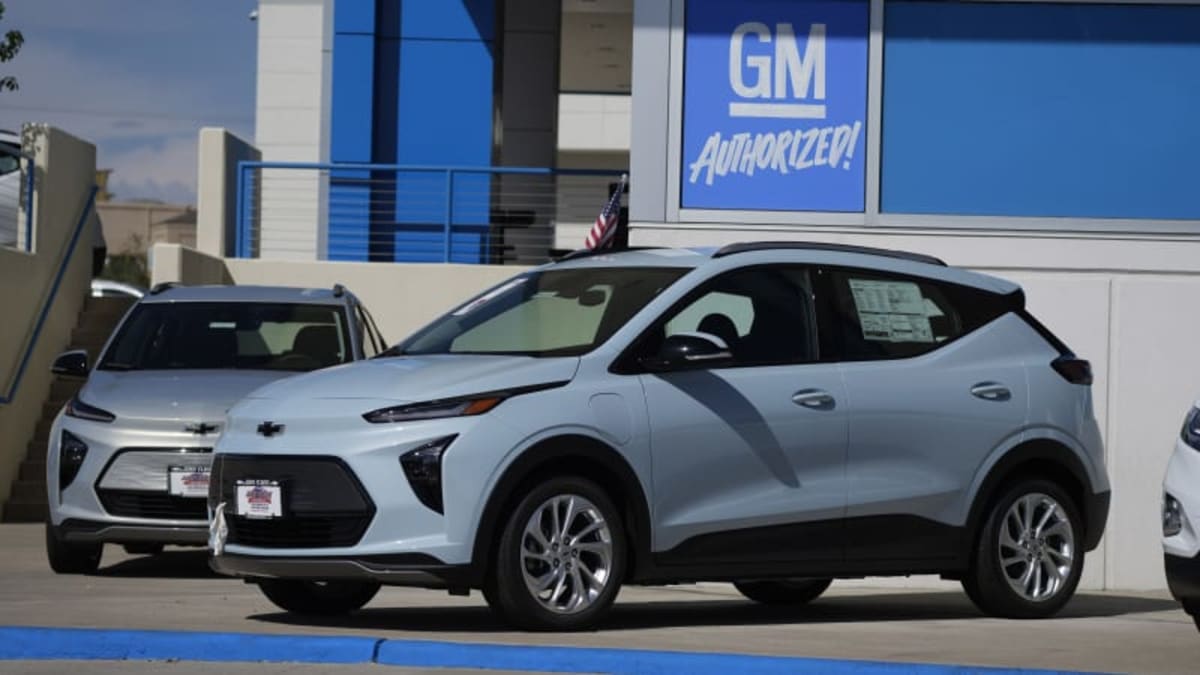GM has announced that it will pay $1,400 to owners of 2020-2022 Bolt EVs and EUVs who are enduring a recall that limits range to 80 percent for a significant period of time, Electrek has reported. It's effectively an upfront payment to customers from an expected class action settlement.
"GM is announcing a compensation program for 2020-22 Bolt EV/EUV owners upon installation of the final advanced diagnostic software as part of the original battery recall," a spokesperson wrote in a statement. "Owners are eligible to receive a $1,400 Visa eReward card upon installation. This applies to Bolt EV/EUV owners in the U.S. only. We’re grateful to our customers for their patience and understanding."
Owners must install a "software final remedy" by December 31, 2023, and sign a legal release — those who decline will have to wait for the class action lawsuit to play out. If the settlement ends up being more than $1,400, those who accept the payment will still receive the difference.
It seems like Chevy's Bolt EVs (and larger EUVs that came along in 2021) have never not had problems with their batteries. The 2017-2019 models had serious defects that could cause fires, forcing GM to recall them and install special software, reducing maximum charge levels to 90 percent.
The 2020-2022 models affected by the lawsuit used new battery chemistry with a different issue that could also cause a fire when the car was fully, or nearly fully charged. GM issued a recall for those models as well, installing diagnostic software that would reduce maximum charging levels to 80 percent (cutting range from about 259 miles to 207 miles). The software could potentially warn customers that their battery pack needs to be replaced — the problem is, the vehicles need to log 10,000 kilometers (6,200 miles) of service for the software to make that determination. If the software detects no problem after that, it will automatically return the maximum charge level to 100 percent.
Until then, owners are stuck at an 80 percent state of charge, so the $1,400 is meant to pay them for their trouble.
Reaching 6,200 miles could take years for some buyers, and GM mandated that owners complete the diagnostic by March 2025 in order to qualify for an extended warranty or replacement battery, if needed.
GM announced earlier this year that it was discontinuing the Bolt EV amid the company's shift to the Ultium platform, possibly because it felt the name had been sullied by the battery issues. Following an outcry, though, it backtracked and said that a next-gen Bolt was in the works — showing that people still liked what the Bolt stood for (a practical, cheap EV with decent range) despite the recalls.
Presumably, any potential settlement would cover owners who effectively lost the full and expected use of their vehicle during the period. If you're part of the recall, you should receive a letter soon with more information and a unique PIN to access their site — more information is available here.


Sign in to post
Please sign in to leave a comment.
Continue